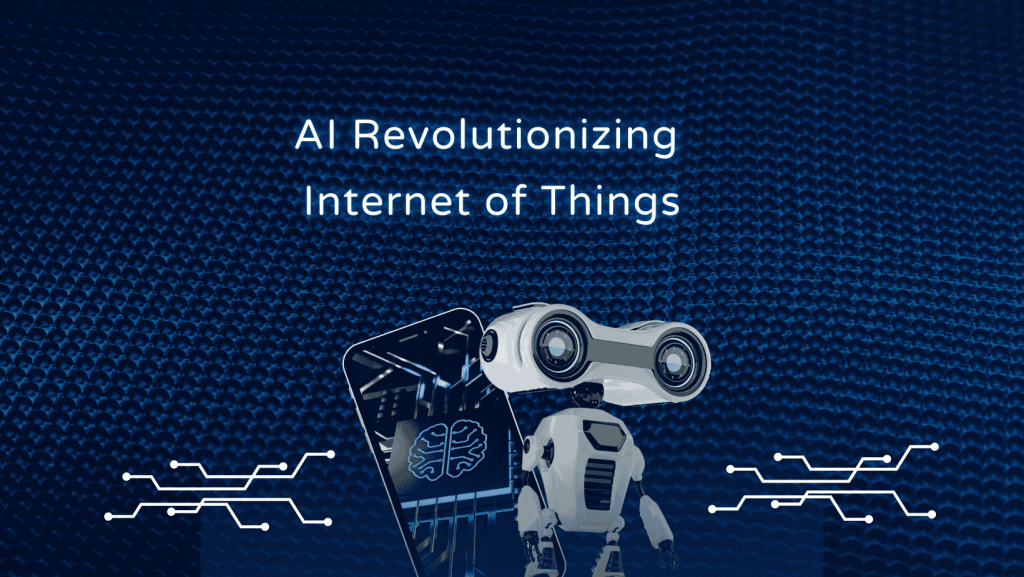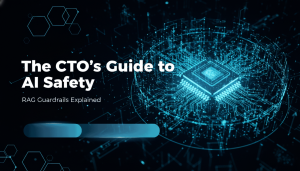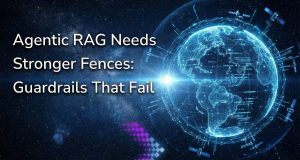Introduction
The internet of things, or IoT, is not just something for the future. It is growing quickly and is now part of our lives with many connected physical objects, and artificial intelligence, or AI, is playing a big role. The number of IoT devices is expanding significantly. This mix of AI and IoT will change many industries and how we live and work. Businesses now have great chances to improve their operations, come up with new ideas, and create new business models.The Synergy Between AI and IoT
 The real strength of IoT is in its ability to collect large amounts of data from connected devices. But if we do not analyze and understand this data, we cannot fully use its potential. This is where AI plays a key role. AI helps IoT systems to make sense of this data, turning it into useful insights.AI algorithms, especially in machine learning, are great at spotting patterns. They also help make predictions and automate decisions. This combination of AI’s smart skills and IoT’s sensing power leads to more efficiency, better optimization, and increased automation in many industries.
The real strength of IoT is in its ability to collect large amounts of data from connected devices. But if we do not analyze and understand this data, we cannot fully use its potential. This is where AI plays a key role. AI helps IoT systems to make sense of this data, turning it into useful insights.AI algorithms, especially in machine learning, are great at spotting patterns. They also help make predictions and automate decisions. This combination of AI’s smart skills and IoT’s sensing power leads to more efficiency, better optimization, and increased automation in many industries.Defining AI’s Role in IoT Evolution
The role of AI in the growth of IoT is not just about better data processing. AI algorithms let IoT systems learn from data, adapt to changes, and make smart choices on their own, without needing humans.We see this change most clearly in smart devices. These devices, found in smart homes and smart cities, use AI to look at real-time data from their sensors and Android applications. This helps them make smart decisions.With machine learning algorithms, smart devices can guess our needs, carry out tasks automatically, and make our experiences personal. For example, a smart thermostat can change the temperature by itself, while a smart traffic system can improve traffic flow. AI-powered IoT solutions change what we expect in terms of convenience, efficiency, and sustainability.How AI Enhances IoT Capabilities
One important way AI helps IoT is through big data analytics. IoT devices create a huge amount of data. AI can look at this data in real time to find patterns, trends, and problems.When businesses in the United States understand these insights, they can make their processes better, work more efficiently, and create new ways to earn money. For example, utility companies can use AI-based IoT sensors to watch energy consumption patterns and reduce energy costs. This helps them manage the electric grid smartly.These ideas also apply to smart cities. In smart cities, sensors and AI work together to control traffic flow, improve public safety, and make life better for everyone living there.Real-World Applications of AI in IoT
 The joining of AI and IoT is not just a theory. It is changing our world with real-life uses. These uses reach different industries. They change how we take care of our homes. They also alter how businesses work.Now, let’s look at a few examples of IoT solutions powered by AI that are already making a difference:
The joining of AI and IoT is not just a theory. It is changing our world with real-life uses. These uses reach different industries. They change how we take care of our homes. They also alter how businesses work.Now, let’s look at a few examples of IoT solutions powered by AI that are already making a difference:Smart Homes and Consumer Devices
The idea of a smart home is becoming real with AI-powered IoT devices like Google Home. These devices easily fit into our daily lives. They include smart thermostats, heating systems, lighting systems, and advanced security systems. They use AI to learn about our routines, likes, and habits.Household appliances that come with AI and IoT features help us be more efficient and comfortable. For instance, you can have a refrigerator that orders groceries automatically based on what you eat. Or, a washing machine that changes its wash cycle according to the load and fabric type.Here are some common examples of AI-powered smart home devices:- Smart speakers: They use speech recognition to talk with users, control other smart devices, and offer information or fun.
- Smart security systems: These systems use AI for facial recognition to give access, spot suspicious activity, and respond quickly to threats.
- Smart lighting systems: They learn your likes and automatically change lighting based on the time of day. This helps with comfort while saving energy.
AI-driven Industrial Automation
AI is changing the industrial world by working with IoT. This brings us to a new time called Industry 4.0. In this new setup, industrial IoT devices use AI algorithms. They can gather and analyze large amounts of data from machines, sensors, and production lines.This helps businesses see what is happening in real-time. They can improve their processes and make smart decisions using this data. For example, predictive maintenance uses AI to analyze data from sensors. It can warn companies about equipment failures before they happen. This means less downtime and lower maintenance costs.By using AI-driven automation, manufacturers can make their operations smoother. They can improve product quality, cut down on waste, and adjust quickly to changes in the market.Challenges and Solutions in Integrating AI with IoT
The combination of AI and IoT offers many possibilities. However, there are challenges we need to tackle for successful and responsible use. We must think about how to manage data, deal with privacy concerns, and keep interconnected devices secure.Addressing these issues is important. It will help us realize the full potential of AI and IoT working together.Overcoming Data Management Hurdles
One of the primary challenges of integrating AI with IoT is managing the massive amounts of data generated by connected devices. This includes efficiently storing, processing, securing, and extracting valuable insights from this data.Traditional data management approaches often struggle to handle the volume, velocity, and variety of data generated by IoT devices. Here’s where implementing best practices for data management becomes crucial::Challenge | Solution |
Data volume and velocity | Cloud-based storage, distributed computing |
Data variety | Data standardization, schema design |
Data security | Encryption, access control, data anonymization |
Data analysis | AI-powered analytics tools |
Ensuring Privacy and Security
As more IoT devices connect to wireless networks, keeping these networks secure and private is very important. These devices collect and send a lot of personal and sensitive data, so we need strong security measures.Hackers are always looking for weakness to take advantage of. That’s why it’s crucial to use good authentication, encryption, and access controls. These steps will help protect data from unauthorized access and cyberattacks.It’s also important to find a good balance between security and user experience. Businesses should focus on strong security protocols but not forget how to keep it easy for users and stakeholders.Conclusion
In conclusion, the combination of AI and IoT is changing how we use technology. AI improves IoT by giving smart insights and automation. In smart homes and industry, we see how powerful this working together can be. There are challenges, like data management and privacy. These challenges are being tackled to make sure everything stays safe. The growth of AI in IoT is leading to smarter solutions and a more connected future. We should welcome this new technology to discover many possibilities.Contents
Frequently Asked Questions
Most frequent questions and answers
AI changes IoT devices into smart solutions. It helps these devices check data, learn from patterns, and make smart choices. This improves efficiency, automates tasks, and gives a more personal and responsive experience for users.
AI-powered virtual helpers, smart home gadgets, and mapping apps have changed my daily life a lot. These tools use AI to automate, personalize, and optimize tasks. This has made my life easier and more efficient.



